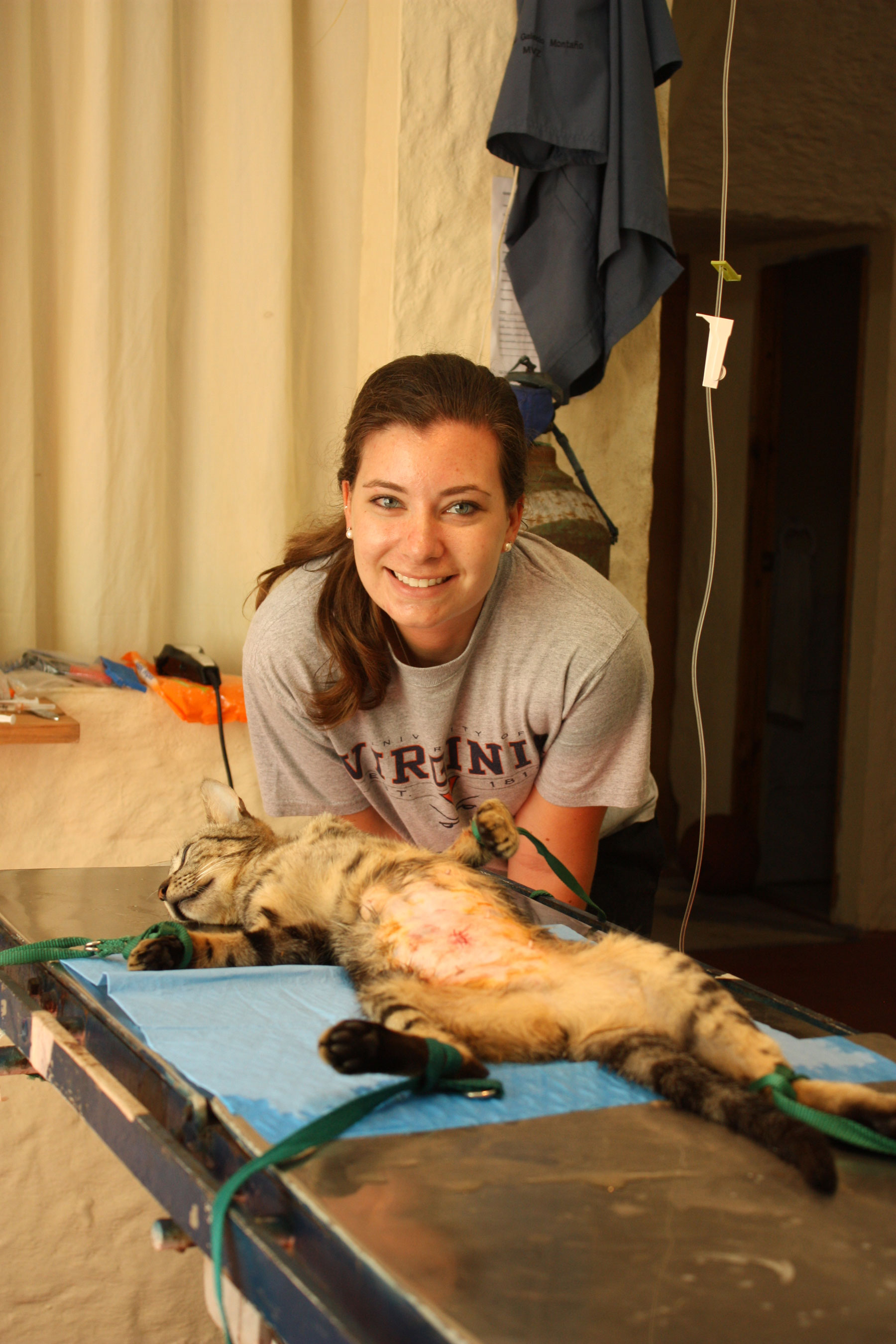Caroline Maguire, Volunteer Veterinary Technician
This past January, I spent three weeks working with Darwin Animal Doctors in Santa Cruz as a volunteer veterinary technician. This was my second time visiting the Galapagos, the first being one year ago on a ten day trip for a Tropical Ecology course. However, this time, my visit to the Galapagos was not for vacation. This time I was here to try to help the cats and dogs who threaten the ecosystem that makes the Galapagos unlike any place in the world. When most people think of the Galapagos Islands, they picture a place that is pristine and untouched. Yet the reality is that the marine iguanas, the giant tortoises, the Galapagos sea lions and the boobies all have to share the islands with humans, as well as the companion pets that accompany them. The islands are unbelievably fragile and uncontrolled populations of cats and dogs can have devastating effects on the endemic fauna.
This is why Darwin Animal Doctors is so important for both the natural ecosystem and the
introduced cats and dogs. Before DAD, there was no control of pet populations. Regular spaying
and neutering of pets simply wasn’t done in the Galapagos. Yet with the introduction of DAD
to the area, this is slowly changing. In the short three weeks that I was at the clinic, we spayed
or neutered 24 animals that otherwise would have procreated at an uncontrolled rate, increasing
the destructive effects of invasive cats and dogs on the endemic wildlife. Some people are still
reluctant to sterilize their animals however, and it is always frustrating to see un-neutered dogs
roaming the streets during the day or countless litters of puppies playing in yards. But change
comes slowly and DAD is changing attitudes in the Galapagos for the better.
The veterinary care that DAD provides on the islands goes beyond spaying and neutering. To
many who live in the Galapagos, cats and dogs are easily replaceable. In the three weeks I spent
at the clinic, the oldest animal I saw was a six year old dog. They simply do not live as long as
the average cat or dog in the States due to a lack of regular and appropriate care. DAD provides
veterinary care for animals who otherwise would never see a vet in their lifetime. At times,
it was frustrating. Many of the people who live in the islands do not hold veterinary care as a
priority. On one of my last days, we had a small puppy come in who had fallen from a second
story balcony and was non-weight bearing on her front leg. Yet the puppy fell on Saturday.
It was Thursday. The owners had waited almost a full week before seeking medical attention
for their dog. However, through educational programs and the presence of a free clinic, DAD
was able to provide this puppy with medical attention that she would have never received. So
although a week went by without treatment, we were able to improve the life of this little puppy.
Hopefully through building a relationship with her owners, they will begin to seek regular
veterinary care and her life will be changed for the better.
DAD is revolutionary in the islands and even though only a very small region of the archipelago
is inhabited by people and their pets, the cats and dogs deserve proper medical treatment.
Through doing so, the lives of the resident wild animals can also be protected and the uniqueness
of the islands will be preserved for generations to come.


1 Comment
Jason Baker
This post contains huge valuable information on our pets. This article can help by preventing risk. Truly its a nice job. Thank you for sharing with us. This will certainly help all pet owners.